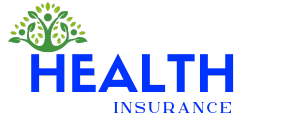Health insurance is a significant expense for individuals and families, but with the right strategies, you can find cost-effective options that meet your healthcare needs. Whether you’re shopping for a new plan, evaluating your current coverage, or simply looking for ways to cut down on healthcare expenses, these tips can help you make informed choices, save money, and manage your health plan effectively.
Understanding Health Insurance Affordability
Health insurance affordability goes beyond just the monthly premium. To truly assess whether a plan is affordable, consider how deductibles, copayments, and out-of-pocket maximums will impact your budget. Balancing these elements can help ensure that your healthcare costs remain manageable.
Key Considerations When Choosing a Plan
Selecting a health insurance plan can be challenging, especially when faced with multiple options. Here’s what to keep in mind to make a well-rounded decision.
Importance of Not Solely Focusing on Monthly Premiums
While lower premiums are attractive, they often come with higher deductibles and copayments. A plan with a low premium may look affordable upfront but can become expensive if it doesn’t cover essential services or requires high out-of-pocket payments for frequent medical visits. Evaluate how much healthcare you anticipate needing in the coming year and calculate the total cost to determine if a lower premium plan is truly more economical.
Evaluating the Total Cost of Healthcare
When choosing a plan, take a comprehensive view of all associated costs. Calculate your potential expenses by including monthly premiums, deductibles, and copayments for visits, lab tests, and prescriptions. Also, consider the out-of-pocket maximum, which caps the amount you’ll spend on healthcare in a year. This will give you a clearer picture of your total costs under different plans.
In-Network vs. Out-of-Network Providers
Many insurance plans have preferred provider networks, which offer reduced costs for in-network services. Visiting out-of-network providers often leads to higher fees, which may not count toward your deductible or out-of-pocket maximum. Choosing in-network providers can save you significantly and help you avoid surprise bills.
Strategies for Finding Affordable Health Plans
Finding a health plan that balances affordability with adequate coverage requires exploring your options and timing your decisions carefully.
Exploring Various Health Plan Options
Different types of health plans, such as Health Maintenance Organizations (HMOs), Preferred Provider Organizations (PPOs), and high-deductible health plans (HDHPs), offer different levels of coverage and costs. HMOs tend to have lower premiums but require you to use in-network providers, while PPOs offer more flexibility at a higher cost. HDHPs often have lower premiums and higher deductibles but are compatible with Health Savings Accounts (HSAs), which provide tax advantages.
Utilizing Open Enrollment Periods Effectively
Open enrollment is your annual opportunity to adjust or choose a new plan. Review your healthcare needs and financial situation to determine if your current plan is still suitable. Many people stick with the same plan year after year, but open enrollment is a chance to compare new options that may offer better coverage or more affordable premiums.
The Role of Government Assistance Programs
If your income falls within certain thresholds, you may qualify for subsidies or tax credits under the Affordable Care Act (ACA). These subsidies help lower monthly premiums and make healthcare more accessible. Medicaid and CHIP (Children’s Health Insurance Program) are also available for low-income individuals and families, offering comprehensive coverage with little to no out-of-pocket costs.
Tips to Reduce Overall Healthcare Costs
Once you have your insurance plan, there are still ways to save on healthcare expenses.
Negotiating Medical Bills
It’s not uncommon to find errors on medical bills, so reviewing them for accuracy is essential. If you receive a high bill, contact the billing department to inquire about payment options or potential discounts. Many providers offer payment plans or discounts for immediate payment, and you may be able to negotiate a lower rate, especially if you’re paying out of pocket.
Using Urgent and Retail Clinics for Non-Emergencies
For non-emergency situations, visiting an urgent care clinic or retail clinic can be more cost-effective than an ER visit. Many urgent care centers provide the same services as emergency rooms for minor injuries and illnesses, and retail clinics located in pharmacies or supermarkets are a convenient option for basic healthcare needs at a lower cost.
Benefits of Health Savings Accounts (HSAs) and Flexible Spending Accounts (FSAs)
HSAs and FSAs are tax-advantaged accounts that allow you to save money for healthcare expenses. HSAs are available to individuals with HDHPs, and they offer triple tax benefits: contributions are tax-deductible, growth is tax-free, and withdrawals for medical expenses are tax-free. FSAs, on the other hand, can be used by employees with traditional health plans. Both options can help reduce your taxable income and cover out-of-pocket healthcare costs effectively.
Strategies for Lowering Prescription Costs
Prescription medications can be a major expense, but there are ways to reduce costs. Opt for generic medications, which are significantly cheaper than brand-name options, and inquire about prescription assistance programs. Many pharmacies also offer discount programs, and some health insurance providers have mail-order services for long-term medications, which can offer additional savings.
Building a Budget for Healthcare Expenses
Budgeting for healthcare helps ensure you’re financially prepared for both routine and unexpected expenses. Start by estimating your yearly costs for premiums, deductibles, and out-of-pocket expenses based on your health insurance plan. If possible, set aside money each month in a savings account dedicated to healthcare costs. This can help alleviate the financial burden of unexpected medical bills.
Educating Yourself on Policy Details
Understanding the details of your health insurance policy is essential for managing costs effectively. Familiarize yourself with terms such as deductibles, copayments, coinsurance, and out-of-pocket maximums. Additionally, review your coverage for preventive services, which are often covered at no cost and can help you avoid more expensive treatments later. Knowing how your plan works can help you make informed healthcare decisions and avoid unexpected expenses.
Conclusion: Empowering Yourself to Save on Health Insurance
With healthcare costs continuing to rise, finding ways to save on health insurance is essential for individuals and families alike. By understanding your options, taking advantage of enrollment periods, and utilizing strategies to reduce medical expenses, you can lower your healthcare costs without compromising your coverage. Taking an active role in managing your health plan empowers you to make cost-effective choices, ensuring that you and your family can access quality care while staying within your budget.

